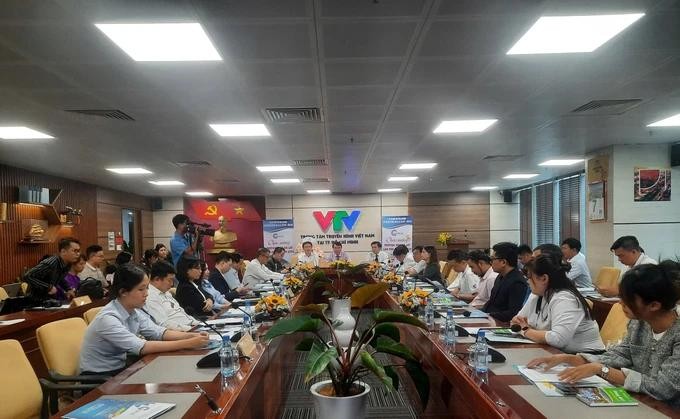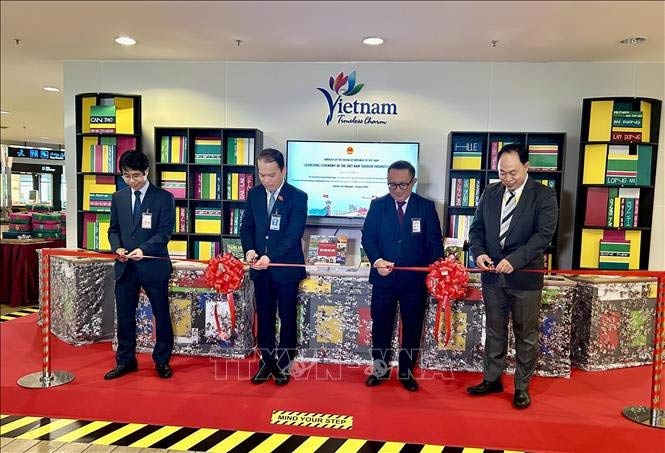Deputy Prime Minister Le Minh Khai on December 27 asked the Ministry of Finance (MoF) to effectively put in place issued policies and those expected to be adopted in order to untangle knots facing businesses, control inflation, and spur socio-economic recovery and development, thus achieving the targets set for 2024.
 |
| Deputy Prime Minister Le Minh Khai speaks at the conference. (Photo: VGP) |
The Deputy PM made the request while addressing a conference reviewing the monitoring over the implementation of finance-state budget tasks in 2023, and putting forth tasks for next year, during which he lauded the ministry’s performance over the past time.
He urged the ministry to quickly roll out action plans and programmes, and take drastic actions right in early 2024 to materialise the socio-economic development plan in 2024, and state budget estimate, as well as the Government’s instructions.
The ministry needs to focus on building and perfecting finance-state budget institutions and policies, and speed up the building of digital government, while continue studying and proposing adjustments and supplements to duty laws and regulations, Khai said.
The Deputy PM reminded the MoF to pay more heed to state budget collection management, and suggested it optimise science-technology in the work.
He also asked the chairpersons of provincial and municipal People’s Committees to closely supervise the implementation of finance-budget solutions, saying localities should coordinate with tax and customs agencies and seriously follow regulations relating to the use of electronic invoices, thus preventing revenue losses.
 |
|
An overview of the conference. (Photo: VGP) |
According to a report presented at the meeting, as of December 25, state budget revenue surpassed 1.693 quadrillion VND (nearly 69.5 billion USD), up 4.5% compared to the yearly estimate.
Meanwhile, the total state budget expenditure in the year stood at about 1.73 quadrillion VND or 83.4% of the estimate.
The Deputy PM lauded the financial sector for promoting e-government building, streamlining the apparatus, stepping up inspections and supervisions, and implementing policies to remove difficulties for businesses.














